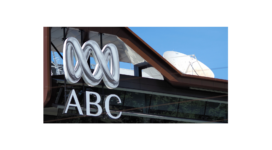The Legal Defence of ‘Public Interest’ in New South Wales Defamation Cases

Australia’s national broadcaster has been ordered to pay $390,000 plus interest and legal costs after losing a defamation lawsuit brought by a former Australian Special Forces Commando.
The case is important in so far it has made clear the recently-introduced legal defence to defamation of ‘public interest’ requires not only that publishers such as reporters, journalists and media organisation must not just believe their publications were in the public interest, but establish that their belief was reasonable in the circumstances,
The proceedings
ABC journalists reported in stories published in 2020 and 2021, that former special forces soldier Heston Russell was involved in the killing of an unarmed Afghanistan prisoner in 2012.
The original allegations arose from a US Marine named “Josh” who contacted ABC journalist Mark Willacy about claims he had heard, but not witnessed, what he believed was a gunshot on radio.
The ABC relied heavily on this source of information for its articles.
Heston Russell subsequently launched a defamation suit against the ABC and two journalists – Mark Willacy and Josh Robertson – over the stories, claiming the articles defamed him by implying he “habitually killed people unnecessarily” while in Afghanistan and that he left “fire and bodies” in his wake.
Mr Russell sued the ABC for damages and aggravated damages alleging his reputation has been “gravely injured” as a result of the publications.
Part of the defamation proceedings related to an article by the ABC published in December 2022 which claimed Mr Russell lied about selling nude photographs on OnlyFans to raise funds for veterans charity Swiss 8.
ABC relies on defence of public interest
It has been a complex and long-running case, during which the ABC journalists initially relied on the defence of truth and, after that was struck down in court, the defence of “public interest” – which was introduced into the Defamation Act 2005 (NSW) on 1 July 2021 through the insertion of section 29A.
The defence, outlined in section 29A of the Defamation Act 2005, is often relied upon by media organisations, to support the fact they have an important role in a healthy functioning democracy to report information that the public has an “interest” in knowing or a “right to know.”
To rely on the defence, the ABC had to prove on the balance of probabilities (in other words, that it was more likely than not) that:
- the matter concerns an issue of public interest, and
- the defendant reasonably believed that the publication of the matter was in the public interest.
When determining whether the defence has been successfully established, the court may consider a range of factors, including:
- the seriousness of any defamatory imputations in the publication,
- the extent to which the publication distinguishes between suspicions, allegations and proven facts,
- the extent to which the publication relates to the performance of the public functions or activities of the aggrieved person,
- whether it was in the public interest for the matter to be published expeditiously,
- the source/s and integrity of the information relied upon,
- in the case of a confidential source, whether there is good reason for the person’s identity to be kept confidential,
- whether the publication contained the substance of the aggrieved person’s side of the story and, if not, whether a reasonable attempt was made by the defendant to obtain and publish a response,
- any other steps taken to verify the information in the matter published, and
- the importance of freedom of expression in the discussion of issues of public interest.
Belief was genuine but not reasonable
In the case before the court, Justice Michael Lee pointed out that a journalist’s belief the reporting was in the public interest must not only be genuine but also “reasonable in the circumstances”.
His Honour said there was no doubt the Mr Willacy “believed the publication of the matter was in the public interest” but “his belief was not reasonable in the circumstances”.
He therefore ordered the ABC to pay Mr Russell $390,000 plus 3% interest and costs, but did not award the former soldier aggravated damages because the reporting was not “improper, unjustified, or lacking in bona fides”.
“No party emerges from this case without criticism, but my conclusion is that the respondents have not established the public interest defence and, as a consequence, Mr Russell is entitled to judgment and an award of ordinary compensatory damages”, Justice Lee remarked.
His Honour went on to provide a number of reasons for his findings, including the way the article was drafted and the ABC’s urgency to publish.
He was highly critical of the journalists, particularly their insistence to draw conclusions without real evidence, and their heavy reliance on one source of information, the US Marine named “Josh”.
Justice Lee found Josh’s memory “called for caution and pointed to the importance of verification and careful scrutiny”.
He added that “all Mr Willacy really did” to test the allegations was “satisfy” himself Josh was who he claimed to be; make “limp requests of Josh to ask his crew mates to speak to him, which Josh rebuffed”; and asked a “senior military source”, who was not present in Afghanistan at the time and who gave Mr Willacy only a “vague indication” the allegation was “credible” and “worth reporting”.
“He did not ascertain, from persons with experience in Afghanistan or anyone with any kind of expertise or on-the-ground military experience, whether Josh’s allegations were plausible.
“Tellingly, many former soldiers gave unchallenged evidence that components of the allegations were not,” Justice Lee said. “A journalist acting reasonably would have done more to explore sources of potential corroboration.”
In perhaps one of Justice Lee’s most critical observations of the ABC and its journalists, he found the drafting of one article did not distinguish between information / actions/ events that were “suspected” and those which were actually proven.
The responsibility of journalists and publishers
The public interest defence is designed to protect those who publish material that is critical of politicians and other public figures, journalists, bloggers, television producers etc and anyone who puts content into the public domain, including individuals who have their own social media pages.
However, the recent case makes clear reporters also have a responsibility to ensure the material they publish is accurate, and fact checked, and doesn’t include ‘presumptions’ or ‘assumptions’ that are not based on truth, or based an accurate and provable set of events or circumstances.
‘Confidential sources’ of information should always be thoroughly vetted. Media also has an obligation to report impartially, rather than persuasively.
Defamation cases are on the rise Defamation cases are on the rise in Australia – and yes, there is a correlation with the rise in social media which has led to a proliferation of platforms, and put increasing pressure on media outlets to fill a 24-hour news cycle – but the ability to sue for defamation an important safety net for anyone who believes that their reputation has been harmed by inaccurate information published about them.
In New South Wales, as in other states, ‘an action on a cause of action for defamation is not maintainable if brought after the end of a limitation period of 1 year running from the date of the publication of the matter complained of’, unless there are compelling reasons to extend this deadline.







